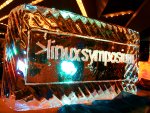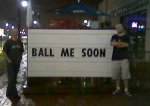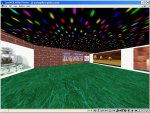Ottawa Linux Symposium
 Linux Symposium is an event I
always look forward to. Being local, it would be foolish of me not to
attend.
Linux Symposium is an event I
always look forward to. Being local, it would be foolish of me not to
attend.
This year went as smoothly as previous years, with many talks, much
developer-to-developer discussion, and excellent evening outings. It really
is amazing to have so many of the minds behind my favourite operating system
in one place. As someone pointed out during the week, "if there were a bomb
at the Congress Centre during this week, Linux would really be set back a
fair bit."
As with every year, there are one or two general topics that drive many
of the talks. Two years ago it was the splitting up of X.org, last year it
was virtualization. This year's most interesting talks focused around the
new kernel debugging mechanisms and the challenges around optimizing
everything from the kernel through to the highest-level applications.
A large portion of my time was spent talking to X developers are trying
to get a grasp on how AIGLX ("aiglix") and XGL work, where they're going.
There is much misinformation out there, and everything is constantly
changing. I think I got a good feel for how the next year of X development
is going to pan out, which is good for both my curiosity and professional
goals.
This conference, as with every conference, always has one person who
really stood out, with whom I spend more time than with others. This year it
was Aaron Seigo, best known for
his involvement with KDE. Aaron is very approachable, knowledgable, fun. It
all started when I overheard on the first day that he needs a place to
crash. I volunteered Hubert, thinking
to myself that it would be funny to impose a KDE developer on him.
Naturally, I only told Hub after Aaron accepted. It turned out being a great
way to make a new friend. Also, Aaron is a karaoke ninja.
Admittedly, after an entire week of festivities, I'm severely drained.
Nonetheless, I'm already looking forward to next year.
[
] | posted @ 03:48 |
link
Roadtrip to Milton
 Last week Markus invited me and the usual suspects to spend the weekend at
his place in Milton, Ontario. I was reluctant to go at first, spending the
last few days before OLS away from home, but going turned out being a good
idea. Despite extreme heat, we had lots of fun. Markus made me promise to
blog about it.
Last week Markus invited me and the usual suspects to spend the weekend at
his place in Milton, Ontario. I was reluctant to go at first, spending the
last few days before OLS away from home, but going turned out being a good
idea. Despite extreme heat, we had lots of fun. Markus made me promise to
blog about it.
On Friday night we went to a bar called Nascar. The goal was to
find a bar that best says "hicktown." I ended up feeling sorry for the
place, seeing as they had all of about eight paying customers on a Friday
night. That figure includes the really bad karaokeists. Also, through no
fault of my own, the letters on the sign in front of the building happened
to rearrange themselves to spell "Ball Me Soon." Funny.
Saturday was even more fun, if "fun" is interpreted as "pushing around a
3800kg Ford Excursion." Markus' work truck was having some serious problems
after we got far away from his place. It would just run very well and then
suddenly choke and die. For better or worse, its frequent stalls and
unwillingness to start added to an entire layer of adventure to the trip.
We'll have to do this again some time.
[
] | posted @ 19:57 |
link
What The Internet Could Have Been
 This entry is a follow-up to the article about my first homepage.
This entry is a follow-up to the article about my first homepage.
Back in the summer of 1996, the fourteen-year-old me was youngest ever
employee at Corel Corporation. My job was as a "Quality Assurance Assistant"
for a little-known product, Corel WEB.SUITE. This product was composed of
WEB.DESIGNER, WEB.WORLD, and WEB.DRAW, a slimmed down CorelDRAW with focus
on output to screen graphics as opposed to paper.
Of particular interest to me was WEB.WORLD, an early (and very simple)
VRML editor. At the time, this technology seemed to me as the future of web
sites. Information could be organized spatially, objects could be
hyperlinked, it ran decently fast on the blazing-fast Pentium-133s of the
day, and it was generally quite popular. Sites all over the place required a
VRML plugin.
For my testing purposes (and because it was fun), I made my online
gallery of computer renderings into a virtual 3D gallery. They were grouped
by "room" and you could click on the images on the walls to get the full
version of the image. It was a fun way of navigating the site.
Somewhere along the way, VRML died off, and now Flash has essentially
taken its place everywhere. Yes, the intended purpose of Flash is different.
Another big difference, however, is that VRML was based on an open
specification that anyone could write a plugin and an editor for. That fact,
coupled with majorly increased 3D graphics performance toward the late
nineties, make its fate a curious anomaly of the web.
Why did it die? I don't know. But if it had taken off, the net could
literally be a completely different virtual landscape today.
[
] | posted @ 03:53 |
link
 Linux Symposium is an event I
always look forward to. Being local, it would be foolish of me not to
attend.
Linux Symposium is an event I
always look forward to. Being local, it would be foolish of me not to
attend.


